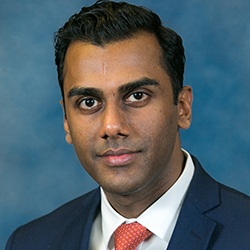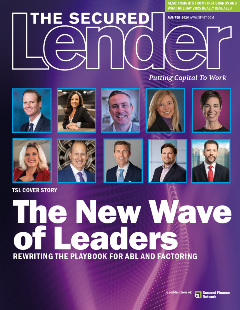
Ikhwan A. Rafeek
Member, Otterbourg P.C.
40 Under 40 Category: Legal Services
Congratulations Message
Message from Ikhwan A. Rafeek
Biography:
Ikhwan Rafeek is a member in Otterbourg P.C.’s Banking and Finance Department. He has extensive experience representing institutional lenders, banks, commercial finance companies, and factors in connection with the documentation of secured lending arrangements, including asset-based, factoring, term loan, healthcare, real estate, middle-market, and first and second lien loan transactions. He also frequently represents secured lenders in workouts and restructurings and in portfolio acquisitions and dispositions.
Ikhwan was named as a “Rising Star” by Super Lawyers Magazine in 2019. He is a member of the New York State Bar Association. He earned his J.D. from St. John’s University School of Law in 2008 and his B.A. from City University of New York – Baruch College in 2005.
What effect has the COVID crisis had on your professional life?
The biggest impact that the COVID crisis has had is that a significant portion of the legal work has shifted from closing new deals to doing workouts for existing deals. With so many uncertainties surrounding COVID, lenders and borrowers have had to come to the table to address defaults that have arisen under their financing arrangements and restructure their deals for the next year.
There has also been an uptick in bankruptcies or discussions for bankruptcies, so our firm has also been actively involved in advising our clients in various capacities related to bankruptcies, including DIP financings, creditors’ rights, and the new Subchapter V small business bankruptcy.
Finally, the CARES Act financing programs, such as the PPP and Main Street Lending, have been a major part of the lending during COVID, and we have been actively involved in advising our clients in connection with their or their borrowers’ participation in these programs.
How have you managed to stay in touch with colleagues and clients during this time of working remotely?
I try to talk to the members of our team at the office at least once a day, and call clients a couple of times a week. While the calls mostly relate to work, I also make an effort to “catch up” and talk about our personal lives. I’ve found that most folks actually welcome the opportunity to catch up for a few minutes and break up the routine of their working from home.
What advice do you normally give to the junior talent you mentor?
When I mentor young attorneys, I remind them to put themselves in the shoes of the businesspeople. This was something that I learned to do early in my career, and it has helped me to always remain focused on finding solutions for our clients. The issues we come across as lawyers are often complex and can take multiple directions. By stepping back and reminding ourselves of what our clients’ goals are, we are able to be more effective advocates and advisors.
I also advise young attorneys to think back to the “lemonade stand” when dealing with new and challenging issues. When young professionals are first starting out, the large dollar numbers can seem intimidating. In most cases, however, the fundamentals are actually the same for both large businesses and small businesses. The analysis is often as simple as a lemonade stand, where a business, at its core, is producing a product and selling it for a profit. I find that by viewing the issues in this light, it can be easier to conceptualize new and challenging issues in a way that is manageable.
When interviewing newcomers to the industry, what do you say to pique their interest about why they should accept a position in this industry?
When I speak to newcomers in the industry, I point out that the work we do in commercial finance is an important part of the economy. The financing transactions enable products and services to be delivered to customers and enable businesses to provide jobs to people across various sectors. In order to pique their interest further, I would usually pick a deal I’ve worked on for a consumer product that they may have seen in the stores, and then use that as a springboard to explain how commercial finance, and specifically what we do as lawyers, played a role in that product getting made and delivered to the consumers.
The Secured Lender

SFNet's The Year Ahead Issue


